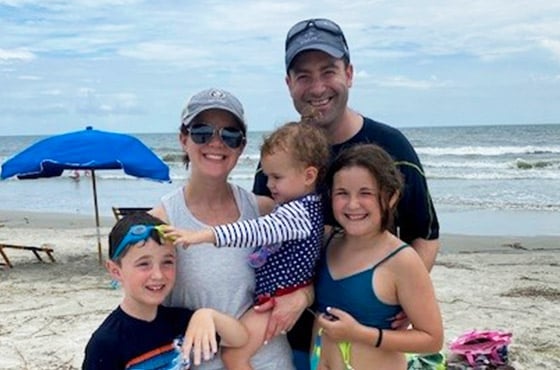The term “gestational carrier” has been in the headlines lately, thanks to reality stars Giulana and Bill Rancic. After miscarriage, hurdles and a scare with breast cancer, the couple is using a gestational carrier, a woman who carries another couple’s fertilized embryo to term, to have their baby.
Contrary to what some might think, gestational carriers and surrogates are not the same, as a surrogate is someone who donates her egg and then subsequently carries the child; she is genetically linked to that baby. In the case of a gestational carrier, the woman carrying the pregnancy is in no way biologically related to the child she is carrying; the eggs and sperm are derived from the “intended parents” (or possibly an egg donor, or sperm donor), through the process of In Vitro Fertilization (IVF). The egg is fertilized in the lab, and then the embryo (or embryos) is placed into the uterus of the gestational carrier. Finding and using a gestational carrier can be complicated in some states.
“Fortunately, Maryland is one of the states which recognizes there are medical reasons why a gestational carrier may be the only way a couple can have a baby and allow gestational surrogacy. Consequently, many couples come to Shady Grove Fertility for care,” says Gilbert L. Mottla, MD, a Reproductive Endocrinologist in Shady Grove Fertility’s Annapolis office.
According to the American Society for Reproductive Medicine, 859 surrogacy and gestational carrier cycles were performed in the United States in 2010. Notably, there has been a 28% increase in gestational carrier cycles since 2007. Shady Grove Fertility has extensive experience with the gestational carrier process, excellent success rates, and offers unique financial programs. If a couple does not bring home a baby through the gestational carrier, 100% of their money is refunded (some exclusions apply).
Though Shady Grove Fertility treats couples for a variety of fertility issues, there are many medical reasons that preclude a couple from conceiving and carrying a baby to term themselves.
“Any female who has had her uterus surgically removed from cervical or uterine cancer, fibroids, severe endometriosis, or a hysterectomy or where her uterus is simply not functional may be a candidate for a gestational carrier.” said Michele Purcell, RN Shady Grove Fertility’s Donor & Gestational Carrier Program Manager. Women who suffer from heart or other health problems that may make pregnancy dangerous for the mother and baby may need gestational carriers as well.
The good news is that as long as the ovaries are intact and functional, there is a strong possibility that the eggs may be retrieved and fertilized with the male partner’s sperm, or donor sperm, to create embryos that can then be placed into the uterus of the gestational carrier. “With In Vitro Fertilization (IVF) and a gestational carrier, a woman can still be a genetic mother while not putting herself or her baby at any dangerous health risk,” said Purcell.
“Shady Grove Fertility relies on experienced and reputable reproductive attorneys and agencies to recruit our gestational carriers,” said Purcell. “Though some couples come to us with a gestational carrier in mind, like a sister who is willing to carrier their embryo, about 75% of couples in this situation rely others to help find them a gestational carrier.”
In the case of same sex couples, intended fathers can use a gestational carrier along with a donor’s egg to complete their family. “In some recent cases here at Shady Grove Fertility, the sister of one partner donated the egg and the other partner’s sperm, linking the child genetically to both partners,” said Dr. Mottla. “The bottom line is that there are now many ways for couples to build a family.”
For more information on Shady Grove Fertility’s Gestational Carrier Program, or to schedule an appointment with one of the center’s physicians, please contact a New Patient Liaison by calling 877-971-7755.






